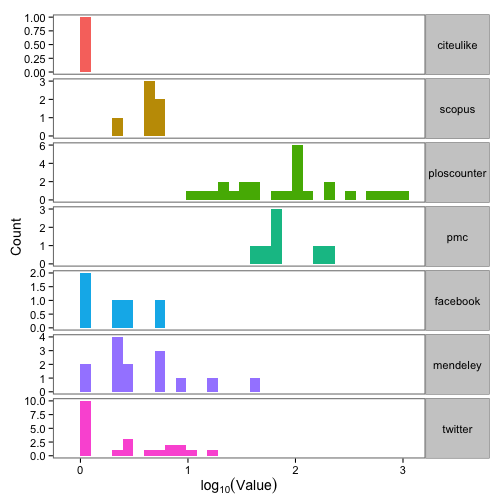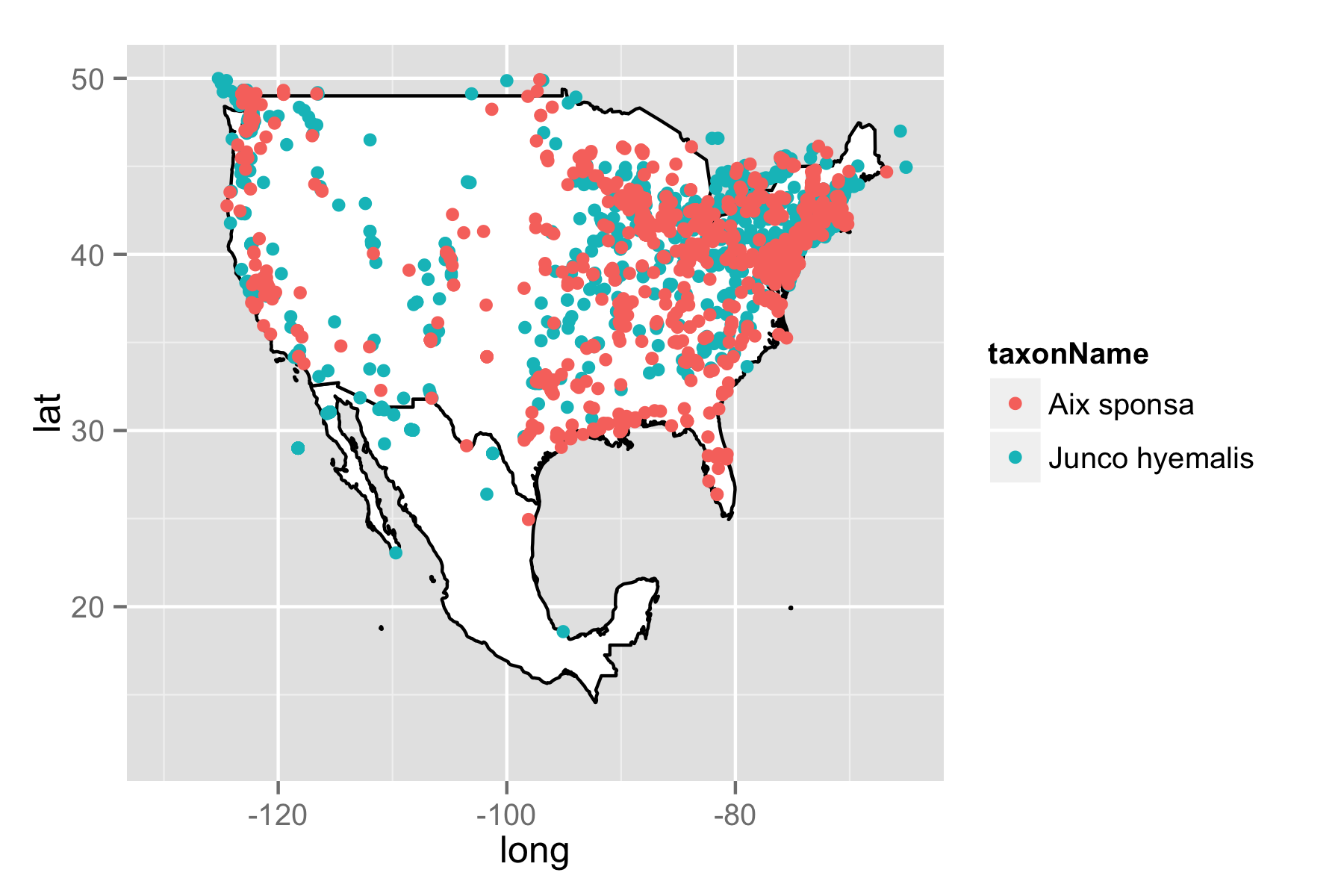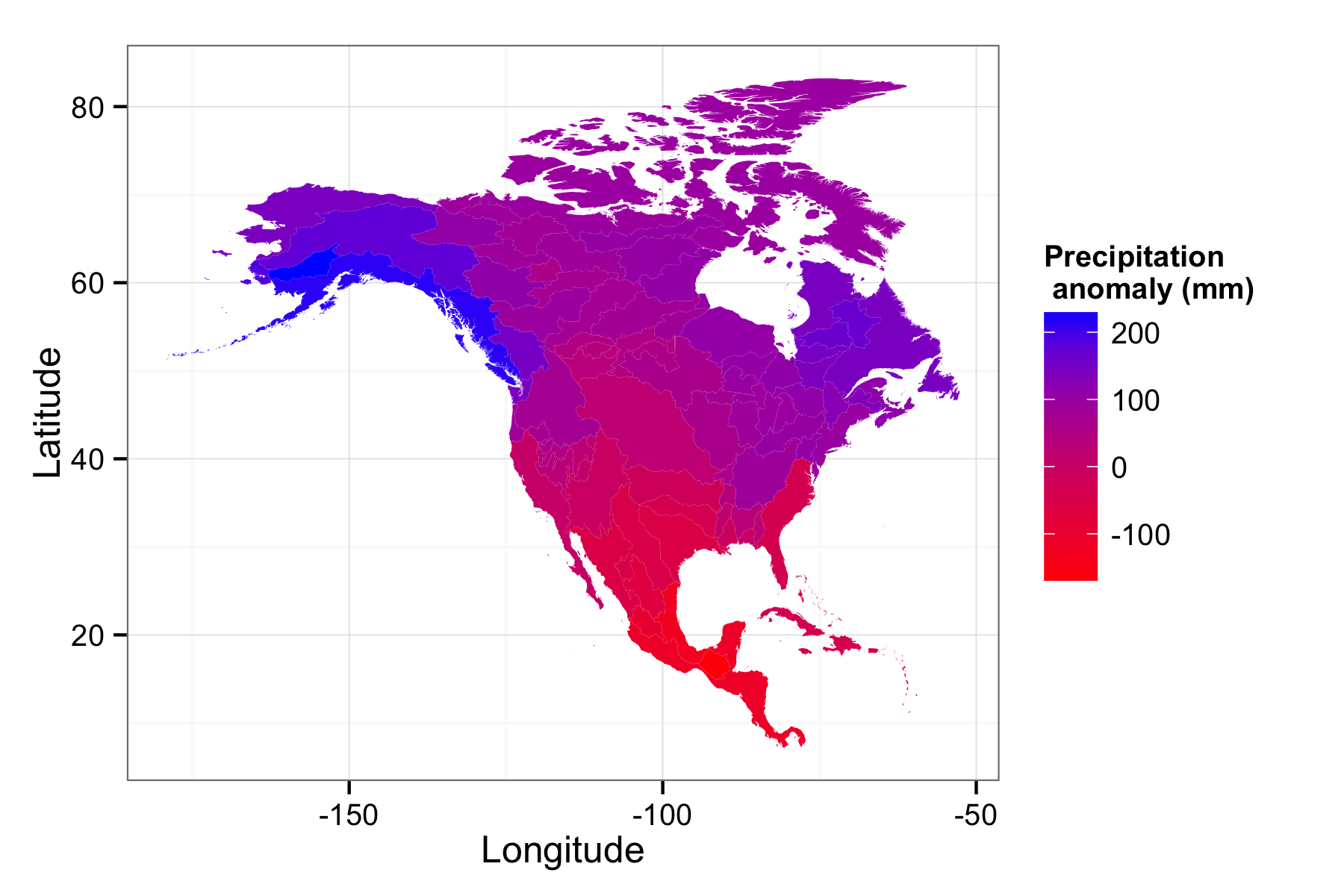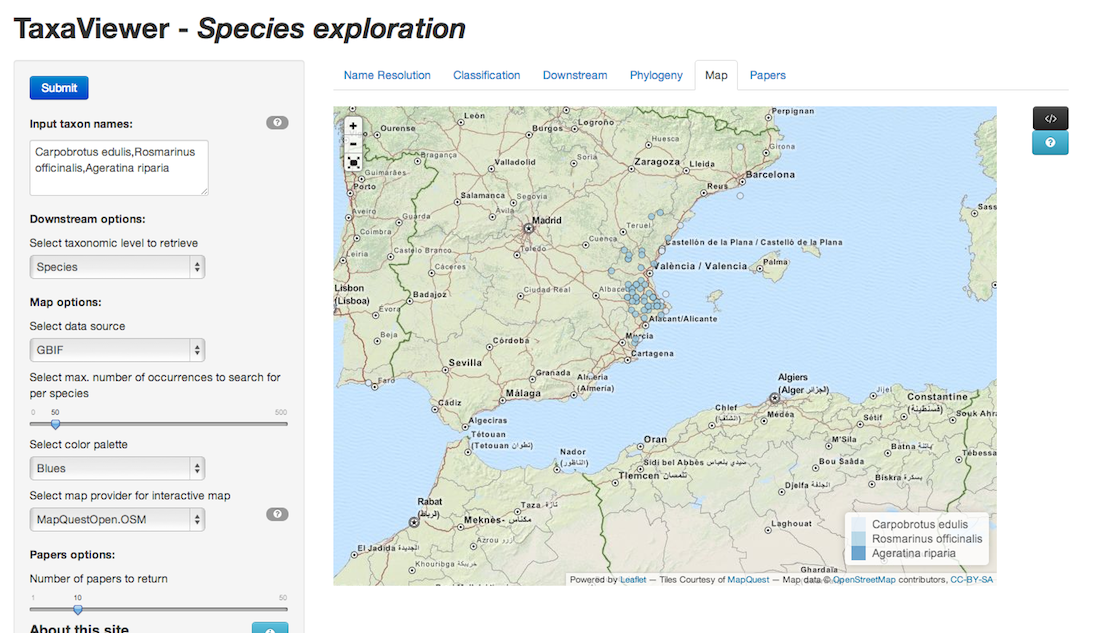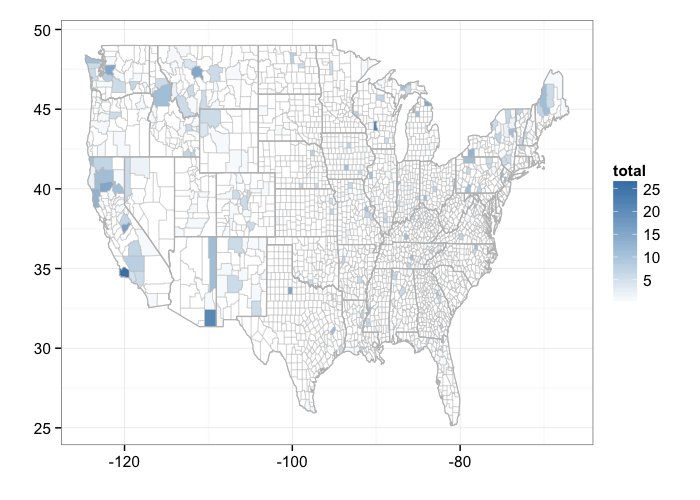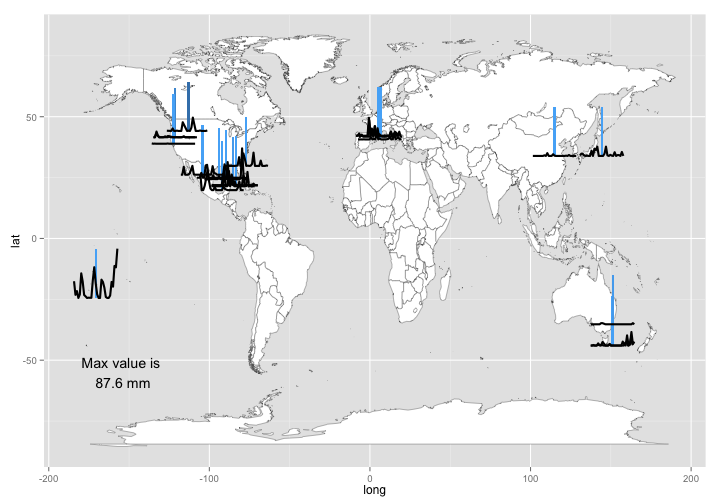
We have started a new R package interacting with NOAA climate data called rnoaa . You can find our package in development here and documentation for NOAA web services here. It is still early days for this package, but we wanted to demo what you can do with the package.
